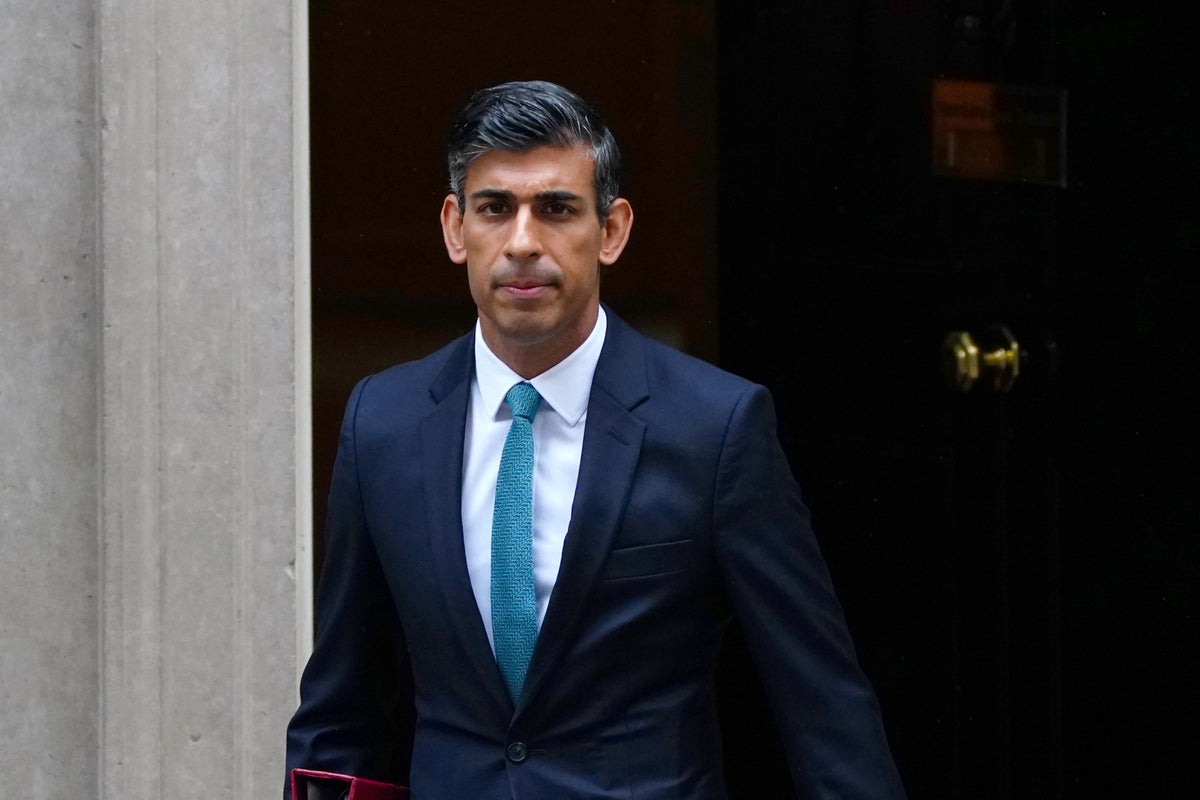
Rishi Sunak has demoted allies of Liz Truss and rewarded his own supporters as he ploughed on with a ministerial shake-up drawing on all factions of the embattled Tory party.
The Prime Minister was already fielding criticism over reinstating Suella Braverman as Home Secretary as he tore up his predecessor’s growth plan and delayed the highly-anticipated autumn budget in a packed first full day in the top job.
He also reimposed the fracking ban in England that was controversially scrapped by Ms Truss, and was reviewing key spending commitments, including on increasing state pensions in line with soaring inflation, in a major overhaul of Government strategy.
The reshuffle continued with the announcement of several junior appointments on Wednesday evening, with Truss allies and former Cabinet attendees Anne-Marie Trevelyan and Chris Philp accepting new, less prominent Government roles.
There were also jobs for Sunak loyalists Alex Chalk, Lucy Frazer and Helen Whately, while former long-serving schools minister Nick Gibb returned to the Department for Education, joined by senior Tory and vocal Truss critic Robert Halfon.
Mr Sunak brushed off opposition demands for an immediate general election as he pledged to rebuild the public finances in a “fair and compassionate” way and to rectify former prime minister Ms Truss’s “mistakes”.
As he settles into his new role at the helm of the Tory party, he is said to be preparing a radical set of education reforms.
Plans reported by The Times echoed his leadership pledges to create a Russell Group of world-class technical colleges and introduce a “British Baccalaureate” that would prevent students from dropping maths and English at 16.
Elsewhere, the PM was facing pressure to launch an official inquiry into Ms Braverman breaking the ministerial code by sharing a sensitive document with a Tory backbencher from a personal email.
Tensions escalated on Wednesday evening as former Tory chairman Sir Jake Berry claimed she had committed “multiple breaches” of the rules.
The Home Secretary is now in line for lessons from MI5 on what information she can and cannot share, according to The Times.
Earlier, Chancellor Jeremy Hunt delayed his Halloween budget setting out the measures to get the UK’s deficit under control to November 17 to take into account the latest economic forecasts.
Downing Street was refusing to commit to key pledges on the triple lock on state pensions and increasing defence spending to 3% of GDP by 2030 as Mr Sunak and Mr Hunt complete their review.
Just last week Ms Truss insisted she was “completely committed” to the manifesto pledge on pensions after facing a backlash when No 10 suggested it may be scrapped.
On Wednesday, Mr Sunak’s press secretary refused to “comment ahead of any fiscal statements or budgets” as she declined to say whether payments will increase in April in line with inflation, at more than 10%.
“But what I can say is he has shown through his record as Chancellor is that he will do what’s right and compassionate for the most vulnerable,” she said.
Tory MP Maria Caulfield, who previously declared she would not vote to end the triple lock when Downing Street indicated it could be ditched, pointed to Mr Sunak’s assurance that he will deliver on the 2019 manifesto.
She told Sky News’ The Take with Sophy Ridge: “It was in our manifesto to keep the triple lock and Rishi was also very clear today that he’s a Prime Minister that’s standing on that 2019 manifesto, and he wants to deliver it.”
She said “of course” there cannot be a “running commentary” on the upcoming budget, but what concerns her is that when the Government “doesn’t confirm one way or the other”, then “speculation mounts”, and “people start to worry”.
Defence Secretary Ben Wallace, who survived Mr Sunak’s reshuffle in the same role, would be on resignation watch if the Government backtracks on the defence spending commitment.
Central to Ms Truss’s growth-boosting vision were investment zones where planning restrictions are relaxed, a “Big Bang 2.0” programme of deregulation of the financial services sector, the scrapping of environmental protections and allowing in more skilled migrants.
But Ms Truss’s official spokesman said: “There are no plans for supply-side reforms as we previously discussed.
“That’s not to say there won’t be elements the Chancellor may or may not wish to come forward with in his autumn statement.”
At Mr Sunak’s combative first Prime Minister’s Questions, Sir Keir attacked the PM’s controversial decision to reappoint Ms Braverman as Home Secretary just six days after she was forced to resign over the security breach.
The Labour leader said it was a sign of the weakness of his position that he had to do a “grubby deal” with a prominent figure on the Tory right to ensure he gained the leadership this time around.
He also taunted the new premier over his defeat by Ms Truss in the last leadership contest over the summer.
“The only time he ran in a competitive election he got trounced by the former prime minister, who herself got beaten by a lettuce,” Sir Keir said.
“So why doesn’t he put it to the test, let working people have their say and call a general election?”
Mr Sunak responded that he had a mandate based on the Conservative Party manifesto on which they won the 2019 election.







